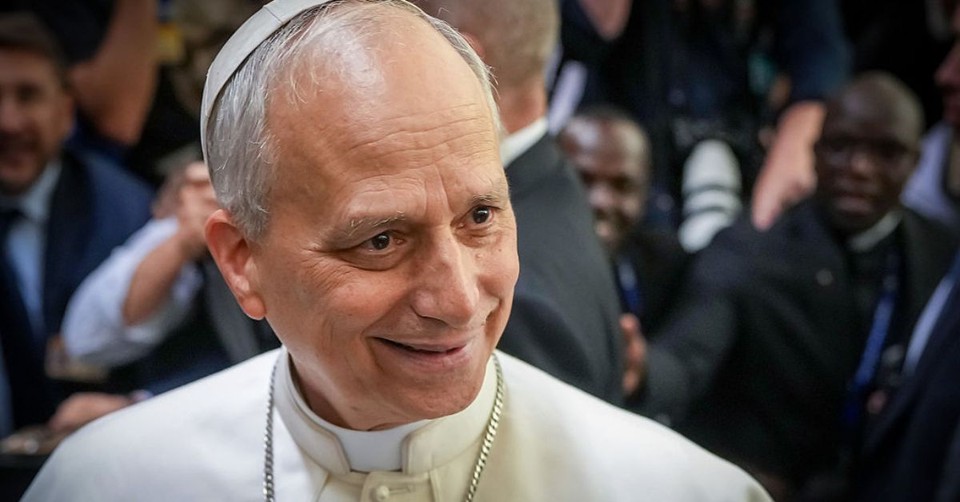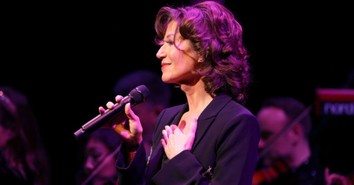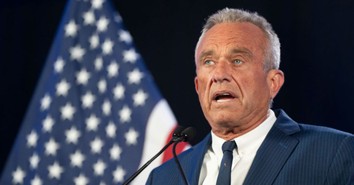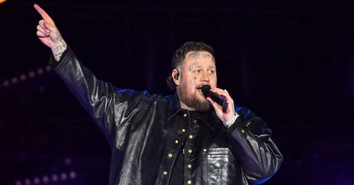Pope Leo XIV Urges Global Leaders to Defend Unborn and Uphold Traditional Marriage

Pope Leo XIV urged governments around the world to stand up for the unborn and to build their societies on the “stable union between a man and a woman” in a speech Friday at the Vatican before the diplomatic corps. The comments marked the first time as pope that Leo addressed two of the world’s top hot-button issues -- same-sex marriage and abortion -- even if he did not directly mention either by name.
The pope urged Catholics to focus on three essential words -- peace, justice, and truth -- that “represent the pillars of the Church’s missionary activity and the aim of the Holy See’s diplomacy.”
His remarks about marriage and life came as he discussed justice.
“It is the responsibility of government leaders to work to build harmonious and peaceful civil societies. This can be achieved above all by investing in the family, founded upon the stable union between a man and a woman, ‘a small but genuine society, and prior to all civil society,’” he said in citing Pope Leo XIII (1810-1903).
“In addition, no one is exempted from striving to ensure respect for the dignity of every person, especially the most frail and vulnerable, from the unborn to the elderly, from the sick to the unemployed, citizens and immigrants alike.”
Leo XIV reflected on his own family’s history.
“My own story is that of a citizen, the descendant of immigrants, who in turn chose to emigrate,” he said. “All of us, in the course of our lives, can find ourselves healthy or sick, employed or unemployed, living in our native land or in a foreign country, yet our dignity always remains unchanged: it is the dignity of a creature willed and loved by God.”
Peace was the “first gift” of Christ, Leo said, quoting John 14:27: “My peace I give to you.”
“I believe that religions and interreligious dialogue can make a fundamental contribution to fostering a climate of peace,” he said. “This naturally requires full respect for religious freedom in every country, since religious experience is an essential dimension of the human person. Without it, it is difficult, if not impossible, to bring about the purification of the heart necessary for building peaceful relationships. This effort, in which all of us are called to take part, can begin to eliminate the root causes of all conflicts and every destructive urge for conquest. It demands a genuine willingness to engage in dialogue, inspired by the desire to communicate rather than clash. As a result, there is a need to give new life to multilateral diplomacy and to those international institutions conceived and designed primarily to remedy eventual disputes within the international community.”
As he closed his speech, Leo focused on the biblical concept of truth.
“Truly peaceful relationships cannot be built, also within the international community, apart from truth,” Leo said. “Where words take on ambiguous and ambivalent connotations, and the virtual world, with its altered perception of reality, takes over unchecked, it is difficult to build authentic relationships, since the objective and real premises of communication are lacking.”
The Catholic Church, he said, “can never be exempted from speaking the truth about humanity and the world, resorting whenever necessary to blunt language that may initially create misunderstanding.”
“Yet truth can never be separated from charity, which always has at its root a concern for the life and well-being of every man and woman. Furthermore, from the Christian perspective, truth is not the affirmation of abstract and disembodied principles, but an encounter with the person of Christ himself, alive in the midst of the community of believers. Truth, then, does not create division, but rather enables us to confront all the more resolutely the challenges of our time, such as migration, the ethical use of artificial intelligence, and the protection of our beloved planet Earth. These are challenges that require commitment and cooperation on the part of all, since no one can think of facing them alone.”
Photo Credit: ©Getty Images/Christopher Furlong/Staff
Michael Foust has covered the intersection of faith and news for 20 years. His stories have appeared in Baptist Press, Christianity Today, The Christian Post, the Leaf-Chronicle, the Toronto Star and the Knoxville News-Sentinel.
Listen to Michael's Podcast! He is the host of Crosswalk Talk, a podcast where he talks with Christian movie stars, musicians, directors, and more. Hear how famous Christian figures keep their faith a priority in Hollywood and discover the best Christian movies, books, television, and other entertainment. You can find Crosswalk Talk on LifeAudio.com, or subscribe on Apple or Spotify so you never miss an interview that will be sure to encourage your faith.
Originally published May 21, 2025.







